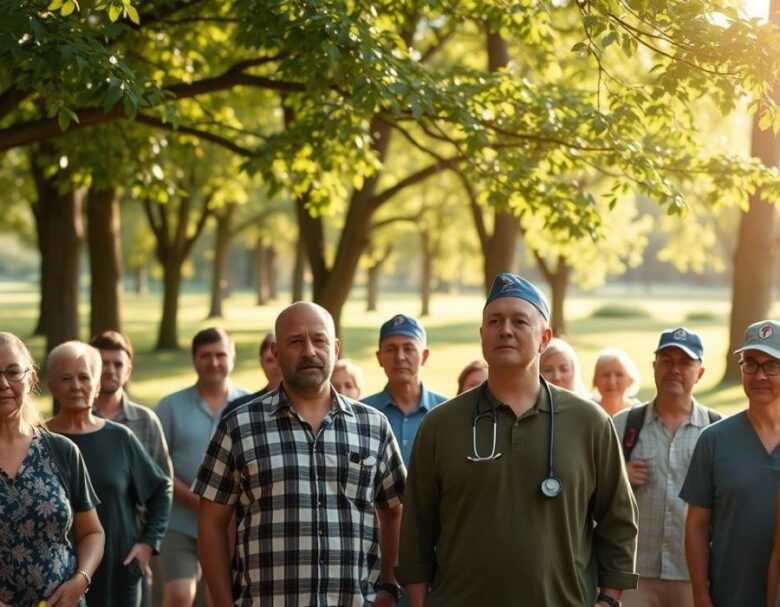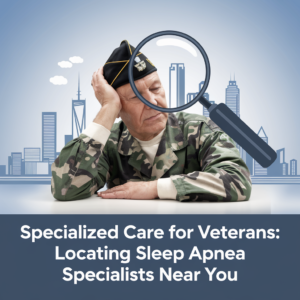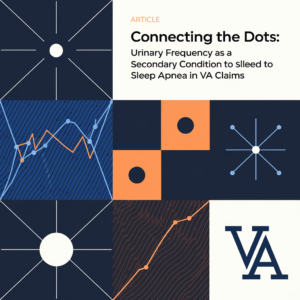For many veterans, healthcare can seem overwhelming. But knowing about VA Healthcare Benefits is key to better health. This guide will cover the basics of veterans’ health coverage, costs, and how to sign up.
Our aim is to help veterans use these benefits fully. This way, they can get the care they need. Knowing about VA healthcare is vital for a healthy life after service.
Introduction to VA Healthcare Benefits
The VA healthcare system is key to the well-being of veterans. It ensures they get the medical care and support they need. The system is designed to provide top-notch care for all health needs, from routine check-ups to specialized treatments.
The history of healthcare for veterans shows a deep commitment to honoring their service. VA benefits include primary care, mental health resources, and preventive services. These services are crucial for managing veterans’ health and improving their quality of life.
Veterans and their families greatly benefit from the VA healthcare system. Knowing about the available resources helps them use healthcare services fully. This leads to better health outcomes in the long run.
| VA Healthcare Services | Description |
|---|---|
| Primary Care | Routine medical check-ups and preventive health screenings. |
| Mental Health Services | Programs and therapies to address mental health conditions. |
| Specialized Care | Focused treatment for specific health issues including chronic illnesses. |
| Rehabilitation Services | Support for recovery from injuries or surgeries. |
Eligibility for VA Healthcare Benefits
Understanding VA healthcare eligibility is key for veterans to get the health services they need. Several factors decide if someone is eligible. These include their service history, discharge conditions, and specific health issues.
To qualify for VA healthcare, veterans usually need to have served for a certain amount of time. Those who served in the military are often eligible if they were not dishonorably discharged. The length and type of service can affect eligibility. For example, wartime service has different rules than peacetime service.
The type of discharge matters a lot. Getting an “honorable” discharge usually means you can get VA health benefits. But, those with “bad conduct” or “dishonorable” discharges face challenges when trying to get VA health benefits.
Some health conditions can also affect eligibility. Veterans with health problems or disabilities from their service get priority. Those facing hard times, like homelessness or low income, might get extra help too.
It’s important to know that even if you’re not eligible now, you might be later. Circumstances can change, and new laws can help. Veterans should look into their options to make sure they get the health benefits they deserve.
Types of Coverage Offered by VA Healthcare
VA healthcare offers a wide range of coverage to support veterans’ health. It has different types of coverage for various needs. This ensures veterans get the care they need, from preventive services to mental health treatment and specialized care.
Preventive Services
Preventive health services are key to keeping veterans healthy. They include vaccinations, screenings, and wellness exams. These help prevent health problems early on.
Regular preventive care helps find diseases early. It also encourages healthy living. This is important for veterans’ long-term health.
Treatment for Mental Health
Mental health is essential for overall well-being. The VA offers many mental health treatments. These include therapy, counseling, and managing medications.
Each veteran gets care tailored to their needs. This helps with PTSD, anxiety, and depression. Mental health treatment greatly improves veterans’ lives.
Specialized Care Options
Specialized VA care is available for specific health needs. This includes rehabilitation, pain management, and treatment for complex issues. It ensures veterans get the care they need for their health journey.
Understanding Costs Associated with VA Healthcare
It’s important for veterans to know about the costs of VA healthcare. These costs can change based on the services and the veteran’s eligibility. We’ll look at the costs for co-payments and fees, and also the free services available.
Co-payments and Fees
Veterans might face different costs for co-payments and fees. These depend on their service and the type of care they get. The amount they pay can change based on their income and disability ratings.
| Service Type | Co-payment Amount | Notes |
|---|---|---|
| Primary Care Visit | $15 | Applicable for non-service-connected conditions. |
| Specialized Care Visit | $50 | Varies based on service type. |
| Prescription Medications | $5 – $30 | Fees depend on medication tiers. |
No-Cost Services Available
There are many free healthcare services for veterans. These include preventive care, mental health services, and emergency care. These services help keep veterans healthy and address urgent needs.
Navigating the Enrollment Process for VA Healthcare Benefits
The enrollment process for VA healthcare is key for veterans to get medical benefits. Knowing how to start this process can make applying for VA benefits easier. The steps are clear when veterans follow a detailed veterans enrollment guide.
Veterans can begin by gathering important documents like military discharge papers and Social Security numbers. This makes the process faster and smoother for the VA.
- Veterans can apply in various ways, including:
- Online through the official VA website.
- By mail using paper forms available for download.
- In person at any VA healthcare facility.
Being organized helps a lot in the enrollment process. Knowing what you need and when can prevent delays. Veterans can also get help from community resources and support groups.
To help veterans, making a checklist is a good idea. It should include things like:
| Step | Description |
|---|---|
| 1 | Gather important documents. |
| 2 | Choose a method of application. |
| 3 | Complete the application accurately. |
| 4 | Submit and confirm the status. |
Understanding the enrollment process for VA healthcare helps veterans get their benefits easily. Whether they choose online or traditional methods, the veterans enrollment guide is crucial. It helps them navigate the process successfully.
Required Documentation for Enrollment
To enroll in VA healthcare, knowing what documents you need is key. You’ll need specific papers to check if you qualify and what benefits you can get.
Here are the main documents you’ll need:
- Proof of military service, such as a DD Form 214 or equivalent.
- Identification documentation, including a government-issued photo ID or driver’s license.
- Financial information that may include income verification, especially for those applying for low-income benefits.
Having these documents ready before you start makes things easier. Without the right papers, getting your benefits can be delayed. Keep all your documents in one place, so they’re easy to find when needed.
How to Apply for VA Healthcare Benefits Online
Now, applying for VA healthcare benefits is easier with online applications. This guide will walk you through the steps to apply online. Knowing the process helps avoid mistakes and ensures your application is processed quickly.
Step-by-Step Online Application Guide
- Visit the official VA website.
- Create or log into your account in the VA’s online portal.
- Select the option to apply for VA healthcare benefits.
- Fill out the application form with accurate personal and service information.
- Review your application for completeness and accuracy.
- Submit the application and save the confirmation for your records.
Common Online Application Issues
Even though the process is simple, some VA application issues can pop up. Here are some common problems and how to fix them:
- Technical Difficulties: Make sure your browser is current and works with the VA website.
- Missing Information: Check all required fields twice; missing info can cause delays.
- Account Access Problems: If you can’t remember your login, use the site’s recovery tools.
- Submission Confirmation: If you don’t get a confirmation email, check your application status online.
| Issue | Description | Solution |
|---|---|---|
| Technical Difficulties | Problems accessing the portal due to browser compatibility. | Update the browser or try a different one. |
| Missing Information | Fields left blank can prevent submission. | Ensure all required fields are filled before submitting. |
| Account Access Issues | Difficulty logging into the VA account. | Use the password recovery option if necessary. |
| No Submission Confirmation | Not receiving an email after application submission. | Check application status by logging into your account. |
The Role of the VA in Coordinating Care
Effective VA care coordination is key for veterans to get the healthcare they need. The Department of Veterans Affairs makes sure care is easy to get and flows smoothly between providers. This helps veterans get the right support for their health needs.
Veterans healthcare support involves working together with many healthcare teams. The VA focuses on keeping care continuous, which is important for health. By teaming up with other healthcare systems, the VA helps veterans get the care they need quickly and regularly.
- Streamlined Communication: Helps healthcare teams share important information, leading to better decisions.
- Integrated Health Records: Keeps all health information in one place, making it easier for all providers to access.
- Personalized Care Plans: Makes sure care is tailored to each veteran’s needs, helping manage health conditions better.
These efforts make managing veteran health more efficient. Veterans get to experience a connected healthcare system, improving their quality of life. The VA’s role in care coordination is vital, showing the importance of comprehensive support for veterans.
| Aspect of Care Coordination | Description | Benefits |
|---|---|---|
| Communication | Facilitated sharing of information among providers | Reduces chances of medical errors |
| Record Integration | A unified electronic health record system | Improves data accuracy and accessibility |
| Care Plans | Personalized strategies for health management | Enhances the effectiveness of treatments |
VA Healthcare Benefits for Family Members
VA healthcare benefits aren’t just for veterans. Family members of veterans can also get help. It’s important to know who can get these benefits. This helps families get the care they need.
Eligibility Requirements for Dependents
Dependents can get VA benefits too. These benefits help military families a lot. Who can get these benefits depends on the type of help needed.
- Spouses must have been married to the veteran for at least one year or for any duration if the veteran’s death was service-connected.
- Children aged 18 to 26 may qualify if they are unmarried and dependent on the service member.
- Parents may also be eligible if they are dependent on the veteran for financial support.
There are also educational and financial benefits for veterans’ families. Knowing about these options helps families make the best choices.
| Dependent Type | Eligibility Criteria | Available Benefits |
|---|---|---|
| Spouses | Married for one year or any duration for service-connected deaths | Healthcare benefits, counseling services |
| Children | Aged 18 to 26, unmarried and dependent | Healthcare coverage, educational assistance |
| Parents | Dependent on veteran for assistance | Healthcare options, support services |
Understanding Appeals and Coverage Denials
Veterans facing healthcare coverage denials have rights and options. Knowing the VA appeals process can help them get the healthcare they deserve.
When a denial happens, acting fast is key. Veterans have just one year to appeal. This shows how important it is to know about VA benefits.
To appeal effectively, veterans should read the denial letter carefully. It explains why the claim was denied. Here are key steps to follow:
- Ask for a copy of the claim file to see why it was denied.
- Collect any documents that support your claim.
- Write a clear notice of disagreement (NOD) with your arguments and evidence.
Also, getting help from veterans’ service organizations or lawyers can be very helpful. They know the VA appeals process well and can offer great support.
The table below shows the different appeals options in the VA system:
| Type of Appeal | Description | Timeline |
|---|---|---|
| Notice of Disagreement (NOD) | A formal statement challenging the denial. | Within 1 year of the decision. |
| Higher-Level Review | A new review by a more senior claims adjudicator. | No time limit for filing, but should be submitted as soon as possible. |
| Board of Veterans’ Appeals (BVA) | A decision by the BVA to review cases beyond NOD. | Must be requested within 60 days of NOD completion. |
Understanding the VA appeals process and denials is crucial. It helps veterans fight for their rights and benefits. Knowing this can ensure they get the healthcare they deserve.
Renewing and Updating Your VA Healthcare Benefits
It’s key for veterans to keep their VA healthcare benefits up to date. This ensures they get the care they need. To renew VA healthcare benefits, veterans must update their personal and medical info regularly.
When a veteran’s life changes, like moving or getting married, they need to update their info. This affects their eligibility for benefits. So, it’s important to stay informed to keep coverage going.
The VA benefits renewal process happens every year, but it can change. Veterans should watch these dates to avoid losing service. They’ll need to provide:
- Current income statements
- Proof of residency
- Any new medical records
Veterans can start the renewal process online, by mail, or in person. This makes it easier to get their benefits renewed. It helps them keep getting the care they need.
| Action | Required Documentation | Frequency |
|---|---|---|
| Renew Benefits | Income statements, residency proof | Annually |
| Update Information | Varies based on changes | As needed |
To keep VA healthcare benefits current, veterans must take action. Following renewal timelines and updating info ensures they can keep getting the health services they need.
Conclusion
VA healthcare benefits are vast and cover many areas, like preventive care and mental health. The sign-up process might look hard, but help is out there. By using these services, veterans can greatly improve their health.
Thinking about veteran health care shows how vital VA benefits are. They help veterans live healthier lives. It’s important to know about outpatient care, family benefits, and costs in the VA system.
The value of VA benefits is huge. Veterans should look into what’s available, stay updated, and get involved in their health care. This way, they take care of themselves and remember their service to the country.




